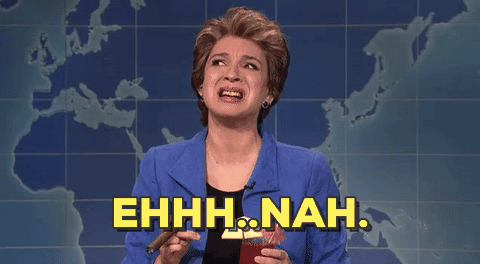Matt Barnum of Chalkbeat looks at the proliferation of tax credits for schooling, which are not quite vouchers:
With its recent adoption of a tax credit scholarship program, Illinois became the 18th state to adopt an innocuously named — but highly controversial — policy that critics have described as a “backdoor voucher.” In some sense, the description is apt. But by injecting a middle layer into the government’s support of private school tuition, tax credits help avoid some of the legal and political obstacles that have dogged efforts by advocates, like Education Secretary Betsy DeVos, to promote school choice through vouchers. Perhaps as a result, more students now use tax incentive programs than vouchers to attend private schools in the U.S.
Barnum digs into the statutory and practical differences between voucher programs and tax credits. Perhaps the most troubling difference is that tax credits sound more appealing, but there's EVEN LESS accountability attached to them than there is to vouchers. These programs could create huge structural barriers to funding public schools, as they essentially allow wealthier tax payers to choose to only finance private schooling. That's bananas.
In other news, Jon Marcus of The Hechinger Report looks at a new source of revenue for cash-strapped colleges:
... private universities and colleges are relying on the money they take in from their graduate offerings to stabilize increasingly wobbly budgets, and public institutions to make up for state cuts and undergraduate tuition freezes ordered by governors and legislatures. It’s an effective solution to a big problem faced by institutions often accused of being financially unimaginative; the president who put it into place at Simmons [College] is a former bank executive who inherited a school that could barely meet its payroll and has transformed it into one that now has tens of millions of dollars in annual surpluses. But it also means that higher education’s money problems are, in part, being balanced on the backs of graduate students who face escalating levels of debt.
I learned a lot from this article, including the fact that there are few guardrails on both what percentage of their tuition graduate students can borrow, and on how high interest rates can be for those loans. While this story doesn't necessarily evoke outrage - at least for me - it does illustrate the fragility of the finances of both borrowers and higher education institutions. I'm going to file this article under "Mounting Evidence That the Financial Model of Higher Education is Untenable."
In other news, Monique Judge of The Root found a youth football team that is kneeling for the national anthem:
... the Cahokia Quarterback Club ... decided as a group to take a knee during the national anthem before the team’s football game Sunday in Belleville, Ill. The team consists of players who are 8 years old or younger, and ahead of their game Sunday, all 25 players kneeled during the national anthem, Fox 2 Now reports. Their coach, Orlando Gooden, told Fox 2 Now, “One of the kids asked me if I saw [people] protesting and rioting in St. Louis. I said yes. I said, ‘Do you know why they are doing it?’” According to Coach Gooden, the player responded, “Because black people are getting killed, and no one is going to jail.”
Children understand what is happening around them. This team's act of solidarity is heartening, but the subtext is striking: young children already know that the state, and its armed representatives, routinely kill people who look like them, without fear of accountability.
For instance, Dale Eisinger and Nancy Dillon of the New York Daily News looked at the case of Daniel Pantaleo, the New York City police officer who killed Eric Garner:
Eric Garner's still-grieving mom met with the city agency that investigates police misconduct Monday and called on local officials to stop taking a backseat to the White House and Department of Justice when it comes to disciplining the officer who used a banned chokehold on her son before his death on a Staten Island sidewalk three years ago. Gwen Carr lauded the Civilian Complaint Review Board for recently recommending the most severe department charges against Officer Daniel Pantaleo. But she said it means nothing if the NYPD and Mayor de Blasio fail to act in deference to a seemingly stalled federal investigation. "I thought I would have gotten justice a long time ago. But as of now, they're still stringing us along. So that's why we are asking, we are begging, the mayor to please go forward with this, and the police department," she said.
There has to be accountability when the state murders someone. Period. To date, local police departments have failed to police themselves; prosecutors abdicate their responsibility to prosecute murderous officers; unions prop up their worst members; and cities continue to pay the salaries of employees who kill civilians. The system is broken at every level.
Have a great day ...

